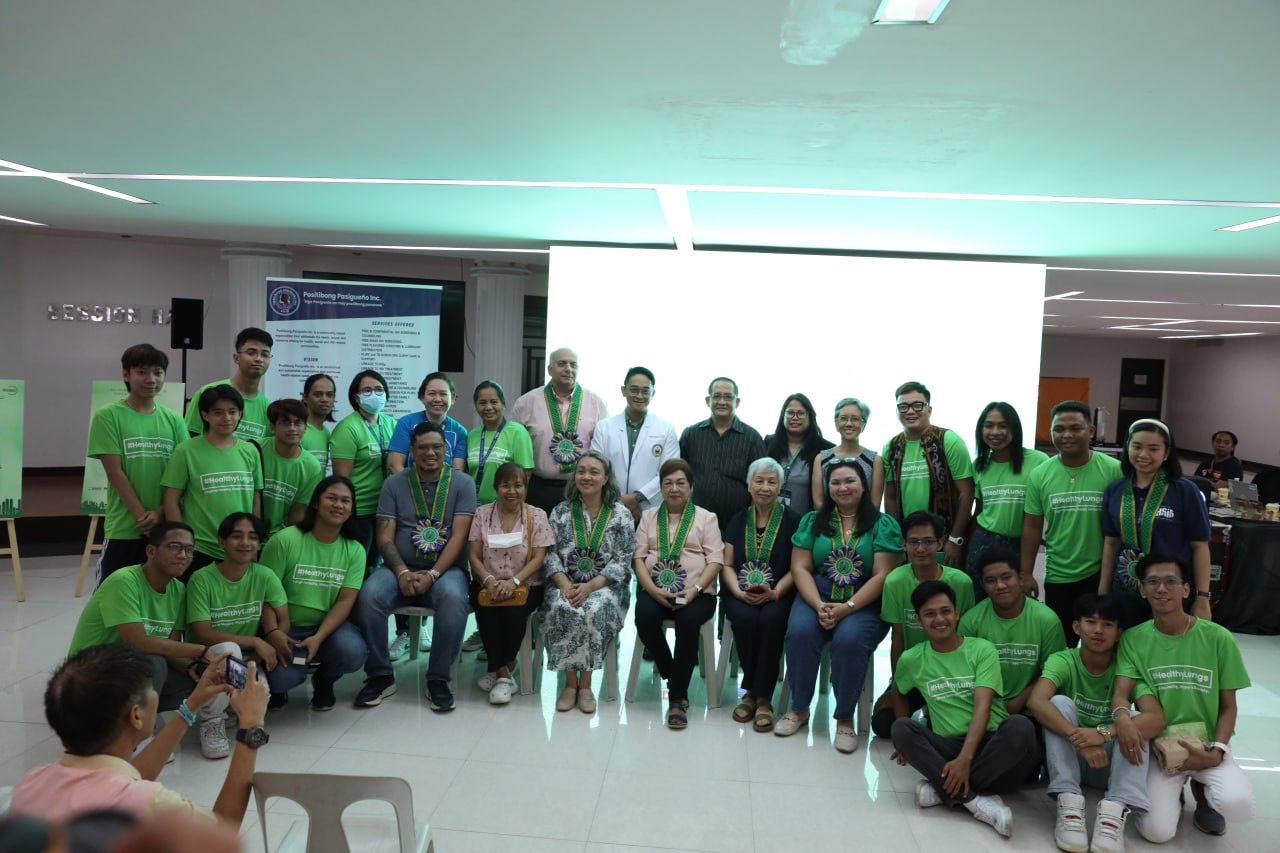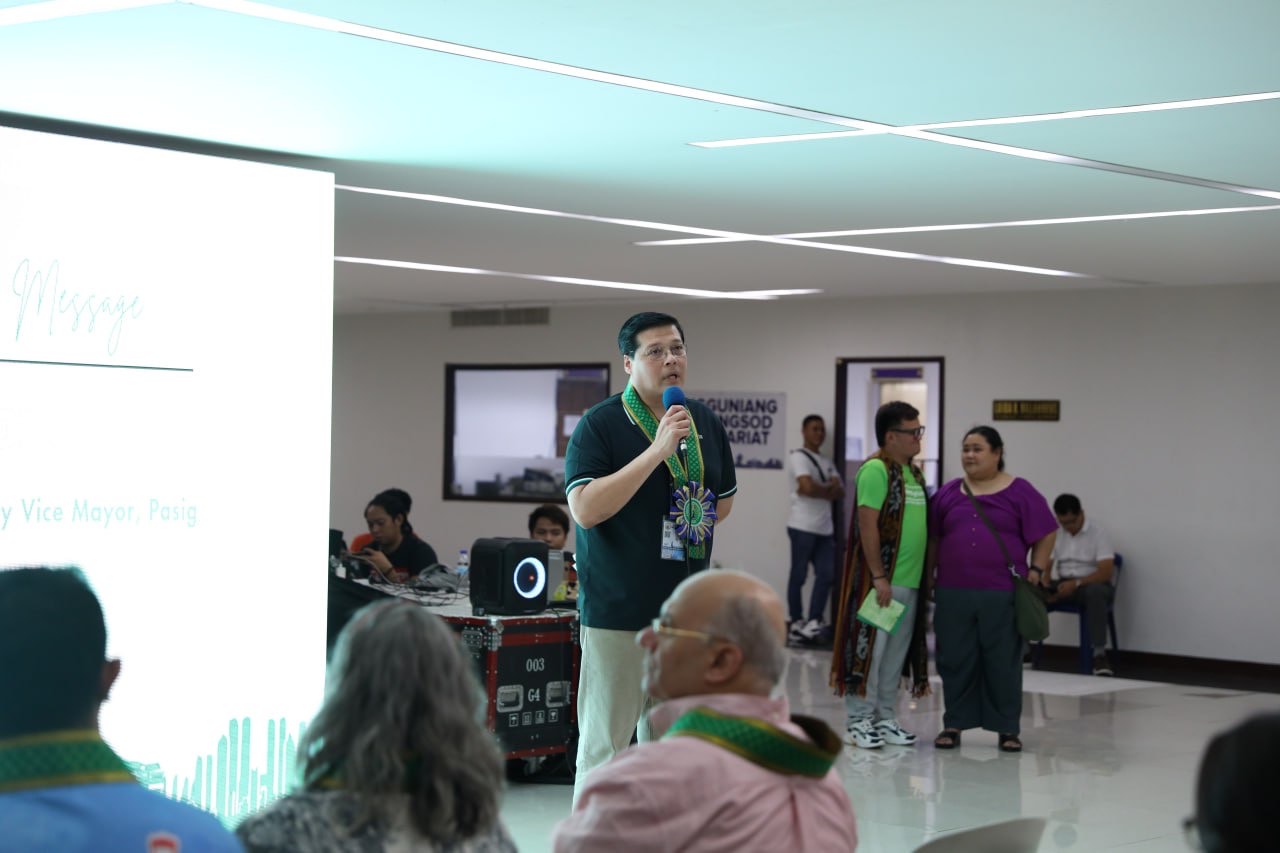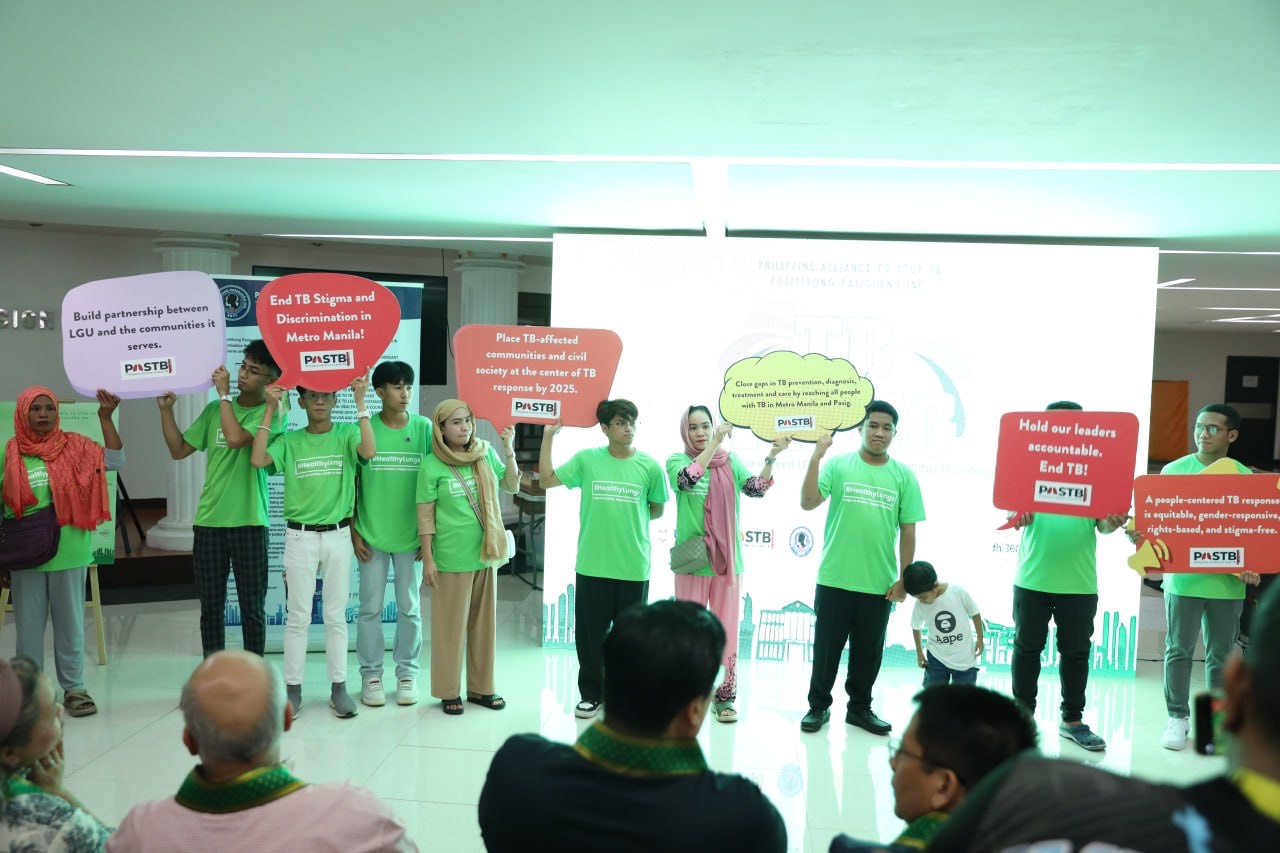The Pasig City local government has committed to strengthen the city’s efforts in eliminating tuberculosis (TB) cases and utilizing a “people-centered” response to the disease.
Vice Mayor Robert “Dodot” Jaworski Jr., and Councilors Eric Gonzales, Corazon Raymundo, Simon Romulo Tantoco, and Volta Delos Santos have signed a declaration that states the local government is committed to “allocating needed resources, passing a local ordinance in support of the TB program, and building partnerships with TB-affected communities.”

It was signed during the “TB sa Pasig: The Community and LGU Commitment on Ending TB in Pasig” Forum,” led by group Positibong Pasigueño and the Philippine Alliance to Stop TB (PASTB) – National Capital Region Coalition.
“It's possible if we work together that we can put an end to the spread of tuberculosis,” said Jaworski.
“Sa ating mga kababayan, ipagkalat ninyo na andito ang inyong pamahalaan, mayroon tayong programa para makatulong sa ating mga kasama na maaaring magkaroon ng TB. Hindi niyo po dapat ikahiya yan. Ang TB ay isang treatable na sakit at kailangang maagapan (To our citizens, spread the word that the local government is here and has a program to help those who may contract TB. You should not be ashamed. TB is a treatable illness and needs to be prevented),” the vice mayor added.

According to the PASTB, the organization is calling for “stronger community engagement through empowerment of TB community-led groups,” as well as investment of continued TB care by the local government in order to “close gaps in prevention, diagnosis, and treatment.”
The forum gathered city officials and communities to conduct a dialogue to understand TB and form partnerships to show a united front against the disease.
It was supported by the United States Agency for International Development (USAID)’s TB Innovations and Action for Health Initiatives (ACHIEVE) program.

The forum enabled TB survivors to talk about their experiences with stigma and discrimination, the coping mechanisms they developed, and addressed the areas for improvement in garnering local support and funding to eradicate TB.
Maria Teresa Jermina, a TB survivor and advocate from Montalban Laban Lungs, said strengthening awareness campaigns on TB and its treatments, developing human rights-based training for health workers and local government personnel can help reduce TB-stigma and discrimination.
“Sa akin matatapos ang diskriminasyon at stigma sa TB. Ako ay patuloy na makikiisa sa pagsugpo at pagtutuldok sa sakit na TB (TB stigma and discrimination will end with me. I will continue to cooperate in efforts to prevent and end TB),” she said.
She also suggested amending the TB law to “include provisions for the protection of human rights of TB patients, and fostering civil society and local government partnership,” as avenues for cooperation between stakeholders.